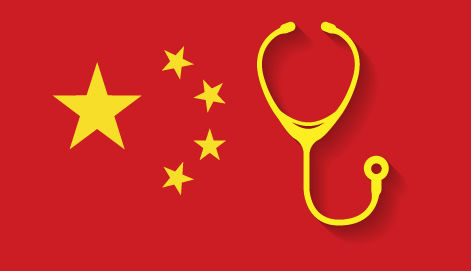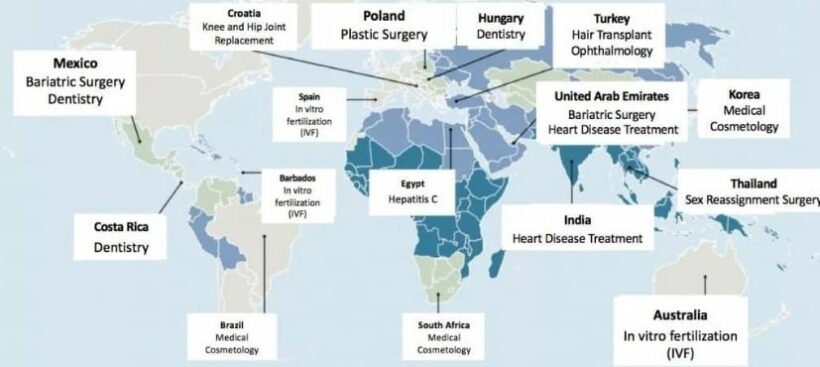Chinese Medical Tourists visiting Thailand set to exceed 1 million by 2020

With a flourishing medical tourism industry worth nearly $4 billion dollars annually, foreign patients are no strangers to enjoying Thailand’s cosmetic and plastic surgery treatments.
From liposuction to laser hair removal, overseas travelers are continually driving the expansion of private clinics and hospitals across Thailand. Last year there were 35 million visitors, of which an estimated 9% were specifically for medical tourism, with a large share coming from China.
And it is from this area, not to mention Japan and Myanmar that Thailand is seeing rapid growth. According to a study from the Kasikorn Research Centre, economic differences and changes to medical policies have seen Chinese tourists flock to South East Asia’s medical hub.
The facts speak for themselves, despite the recent downturn, the research house unveiled a number of interesting statistics. In 2018, more than ten million Chinese tourists visited Thailand alone for travel, contributing to a continual annual increase of 6%-8%. As a result, the potential for growth has been limitless as the country embarks on new and innovative promotional methods.
This is coupled with a variety of services such as dental treatment and fertility management. In addition, there has been greater awareness and interest across China of these specific procedures which remain of lower quality back home. This is compared to the 60-plus JCI-accredited private hospitals in Thailand offering top-notch medical care at a fraction of the price.
Despite further investment in medical tourism in China, natives are searching for alternatives leading to wealthier individuals seeking Thailand’s groundbreaking medical sector. Furthermore, thanks to its burgeoning middle class, many Chinese natives are earning more and, in a position to spend elsewhere.
“The Chinese market continues to grow year on year. In fact, there were more than half a million nationals visiting Thailand for medical tourism in 2018 alone. With more than 800,000 Chinese patients already undergoing cosmetic procedures, interest is rising slowly as hospitals look to expand their services to satisfy demand,” adds Andrew Waters of MyMediTravel.
Despite numbers of Chinese patients at a low level at this stage, K-Research earmarked this growing sector should not be underestimated. This is especially the case when it comes to spending on beauty procedures and fertility management.
Thai facilities are now looking to up their game in double-quick time thanks to this emerging Chinese market. Hospitals are working harder than ever in order to win over customer business with some even trialing Mandarin-speaking nurses. The market is already fiercely competitive in Asia with many Chinese opting first for Japan, Malaysia, and South Korea.
Chinese medical tourists are still traveling to Japan and South Korea initially but Thailand is slowly catching up. This is largely in part down to what they can receive as an overall medical tourism package, featuring highly-trained specialists, stringent hygiene, bilingual staff, price-busting procedures in state of the art clinics and of course Thailand’s stunning scenery.
Whether it’s a rhinoplasty, facelift, placenta anti-aging or living cell therapy, the influence of Chinese patients on Thailand’s pioneering medical sector is growing steadily with visitors projected at more than a million by 2020.

Latest Thailand News
Follow The Thaiger on Google News:


























